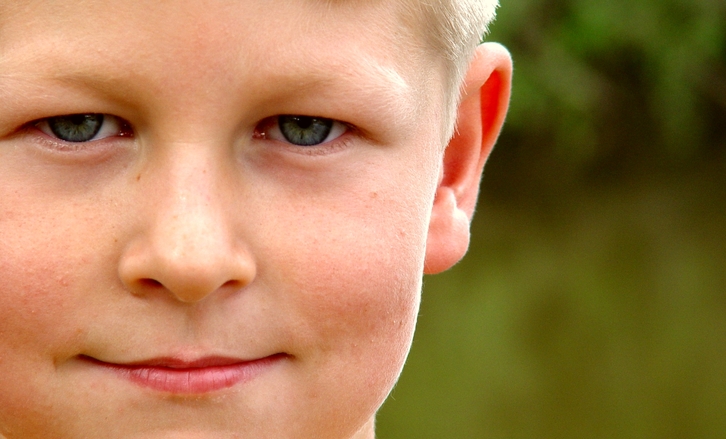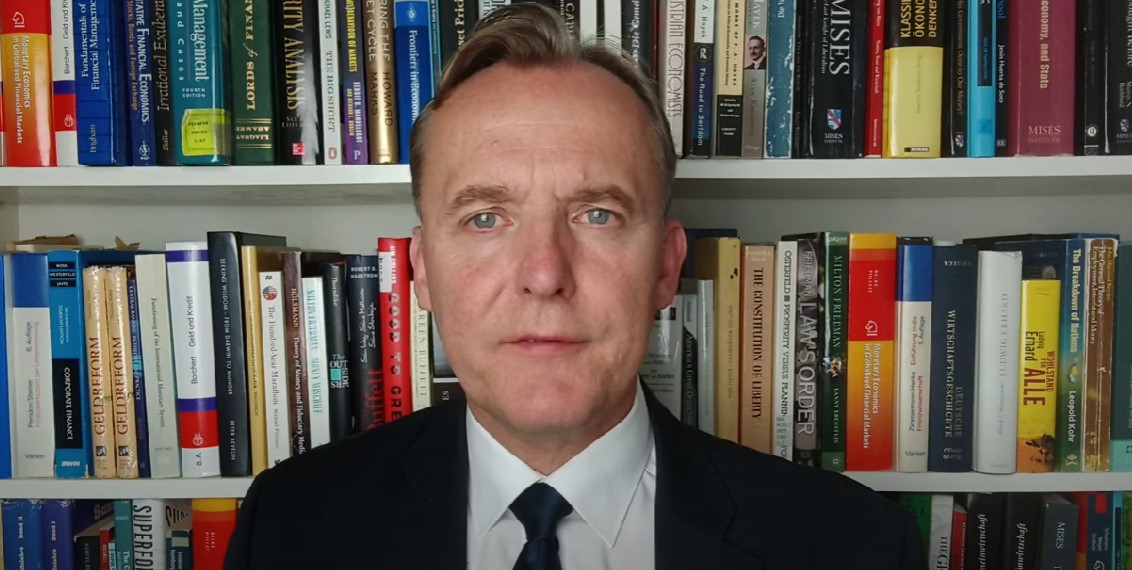Stefan Köster, NPD spokesman for family affairs, explained the desperate need to increase birth rates among native Germans as high immigration rates, low fertility and emigration has wreaked havoc on the demographic.
He stressed that healthy families were the very foundation of a society. All of Europe’s wealth stems from the real diversity of different peoples in their respective nations, he said. Laughing children have sadly become a rarity in Germany as the country now has the lowest birth rate in the world. Köster warned that no amount of consumption and materialism could ever replace the joy of children.
He explained that if current trends were to continue, native Germans could become a minority in major cities within decades. London has already broken that barrier as native Britons are outnumbered in their own city.
But throughout his speech Köster was mocked, heckled and interrupted with insults like “Nazi” or “racist”. Liberal politicians, like Stefanie von Berg, openly celebrated the demise of native Germans.
By 2030, one third of the native population of Germany will be older than 65, and half of all children born in Germany will be from a migrant family.
The NPD outlined the grave necessity of reversing this trend to avoid Germans losing their homeland and future to foreigners, but the proposal to ensure the continuation of the German people were met with a resounding and unanimous rejection by all parties.
A speaker for the Social Democrats explicitly stated in a rebuttal that all democratic parties show nothing but utter contempt for the proposal and will unite to make sure nothing like this will ever pass into legislation.
According to the Social Democrats, the German people has caused nothing but death and destruction by causing two world wars and the mere suggestion of securing a future for German children in Germany is inherently racist, inhuman and a Nazi ideology.
According to the ruling parties, rather than funding German families, “all” families must receive financial support to avoid being racist. The lack of children among Germans has be equalized through mass immigration from Africa and the Middle East.
Now, after the disastrous performance of the NPD in the recent elections in Berlin and Mecklenburg-Pommerania, the party is threatening to implode and the demographic issue has been shoved to the back-burner.
The recent elections has led the NPD close to the political abyss. Especially the loss of the last remaining parliamentary fraction will be devastating for their funding. In contrast to the years between 2006 and 2011, when the NPD gained over five percent to cross the hurdle for parliamentary seats, the AfD drew the disaffected vote this time.
Because the 2013 federal election was the first fought by the AfD, Alternative for Germany, and after receiving 2 million votes to cross the threshold for party funding, it is expected to receive an estimated 1.3 to 1.5 million Euro per year of state subsidies.
According to calculations by Infratest dimap, some 20 000 NPD supporters have left the party for the AfD.
NPD party leaders had recognized the danger early on and declared themselves an “alternative to the alternative” – but in vain. Köster, regional chairman in Mecklenburg-Pommerania, spoke after the election of a “National Ex-parliamentary Opposition” (NAPO), but the suggestion met with little enthusiasm.
According to its interim electoral manifesto, the AfD too wants to reintroduce traditional family patterns. Die Tageszeitung called their objectives “old gender roles”.
AfD leader Frauke Petry has already drawn fierce criticism this year from anti-child mainstream politicians for pointing out that chancellor Angela Merkel lacks a future vision because she does not have children.
The AfD was founded in 2013 by economist Bernd Lucke, a former professor of macroeconomics at the University of Hamburg, along with lawyer and journalist Alexander Gauland and journalist Konrad Adam. It’s main focus then was opposing the European single currency and bailouts to poorer EU countries during the financial crisis and not family politics, but Lucke has since left the party.
The AfD, leftists fear, will now promote “nativism, authoritarianism, and populism”. Cas Mudde, researcher at Oslo University’s Centre for Research on Extremism, said the party was on course to embrace family values and a German identity and should be called “extremist” and “far-right” for that reason.
Following the 2014 European Parliament elections, on 12 June 2014 the AfD was accepted into the European Conservatives and Reformists (ECR) group in the European Parliament.
In February 2016, the AfD announced a closer cooperation with the right-wing populist party Freedom Party of Austria (FPÖ), which is a member of the Europe of Nations and Freedom (ENF) group.













No comments.
By submitting a comment you grant Free West Media a perpetual license to reproduce your words and name/web site in attribution. Inappropriate and irrelevant comments will be removed at an admin’s discretion. Your email is used for verification purposes only, it will never be shared.